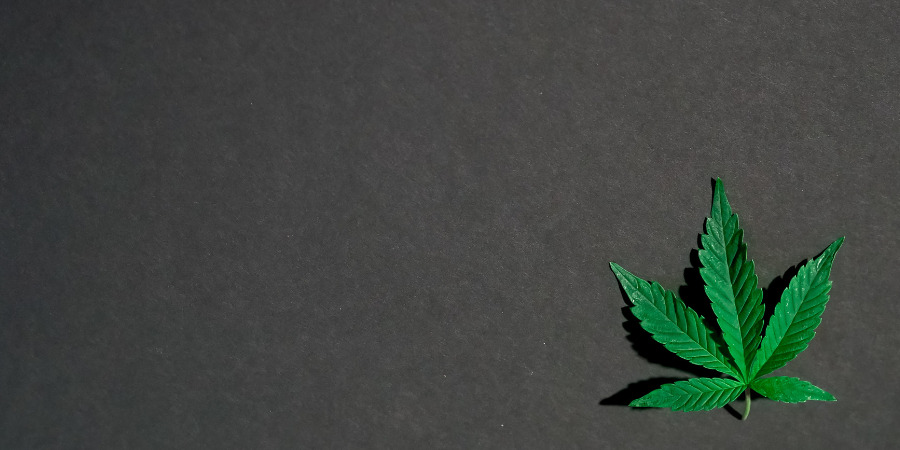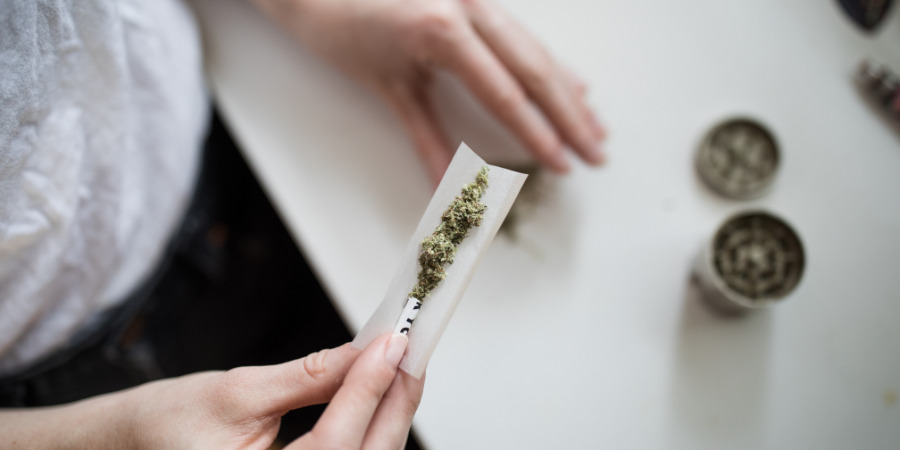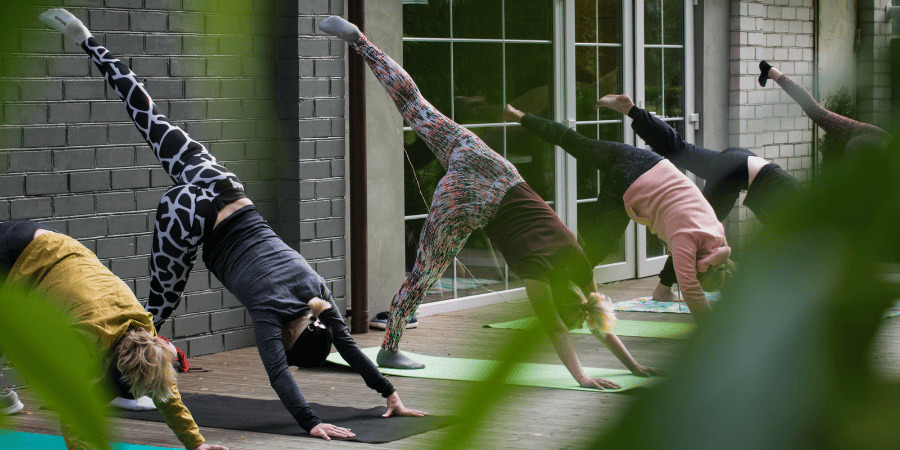
Written by:

Medically Reviewed by:
Last Updated:
February 14th, 2025
Cannabis Rehab
What is cannabis rehab?
Cannabis rehab is a structured programme designed to help individuals overcome dependence on cannabis through medical and psychological support.
Unlike casual use, heavy cannabis use can lead to psychological dependence, making it challenging for some to quit on their own. In rehab, participants receive guidance from professionals through various therapies, such as one-on-one counselling, group therapy and holistic treatments. These therapies help address the root causes of cannabis use, like coping with stress, mental health issues or physical pain.
Cannabis rehab provides a supportive, safe environment focused on recovery, offering tools to build healthier habits and prevent relapse.
When is it time for cannabis rehab?
With the medical world increasingly turning to cannabis for therapeutic purposes and society’s views on the drug becoming more relaxed, it’s easy to fall into the trap of thinking cannabis poses no real risks. This shift in perception can make it harder to recognise when use has crossed from occasional to habitual, clouding our sense of what’s ‘normal’ use.
Regularly checking in with yourself can help you stay within healthy boundaries and catch signs of dependency before they grow. Here are some questions that can help you assess if your cannabis use might be reaching that tipping point:
- Do you find it hard to get through the day without using cannabis, even in situations where you once would have abstained?
- Have you noticed that you need more cannabis over time to feel the same effects, using more than you initially intended?
- Do you experience irritability, anxiety or other withdrawal symptoms if you go without cannabis for a while?
- Have you ever neglected responsibilities or skipped social plans because of your cannabis use?
- Do you rely on cannabis to cope with stress or escape from uncomfortable emotions more often than not?
If you answered “yes” to any of these questions, it might be worth considering whether cannabis has taken a bigger role in your life than you intended and if support could be the next step.
Is cannabis rehab necessary for me?
If cannabis has started to play too dominant a role in your life, seeking medical and psychological support could be essential. While the physical withdrawal from cannabis might not be as intense as with harder substances like heroin or cocaine, the psychological withdrawal can be particularly challenging. A supportive environment that offers comprehensive care and focuses on your well-being can be invaluable during this time.
For some, cannabis use might have started as a way to manage pain, cope with co-occurring mental health issues or simply as recreational use that has become excessive. Through various therapeutic methods, these programmes aim to uncover and resolve the deeper issues that contribute to cannabis dependency.
Heavy cannabis use can also pose a risk of cannabis-induced psychosis, a serious condition that can involve hallucinations, delusions and intense paranoia. This experience can be both frightening and dangerous, sometimes leading to risky behaviours or even self-harm.
If you or someone you know is experiencing signs of psychosis or the negative effects of heavy cannabis use, seeking professional help is a clear and necessary step. A structured cannabis rehab programme provides a safe space where you can receive the support needed to manage these symptoms and regain control over your life.
How is a cannabis rehab programme structured?
Many people find the idea of cannabis rehab daunting, especially when it’s not something openly discussed. This section aims to ease those concerns by providing a clear picture of what cannabis rehab looks like. Each programme is tailored to meet individual needs, ensuring a personal and supportive experience from start to finish.
Initial assessment
The process begins with an initial assessment, where experienced professionals work with you to understand the scope of your cannabis use and any underlying factors influencing it. This assessment is compassionate and entirely confidential, creating a safe space to explore your situation and set realistic goals for recovery.
Detox
If physical dependency has developed, the next stage involves a monitored detox. This process is designed to help your body adjust safely without cannabis, and staff are available around the clock to support you through any withdrawal symptoms. Detox is often done in a gradual way, ensuring comfort and safety at every step.
Therapy
Once detox is complete, therapy becomes a core part of the programme. A blend of one-on-one counselling, group therapy and holistic methods like mindfulness or art therapy helps you address the deeper reasons behind your cannabis use. Therapy provides tools to manage cravings, build coping skills and foster emotional resilience, empowering you to handle life’s challenges without relying on cannabis.
Aftercare
Recovery doesn’t end when rehab does. Aftercare offers ongoing support to help you maintain the progress made in rehab. Regular check-ins, support groups and continued therapy sessions ensure that you stay on track and have access to guidance whenever needed. This stage is all about reinforcing healthy habits and connecting you with a community that understands and supports your journey.
A closer look at why therapy is the cornerstone of cannabis rehab
At Liberty House, we know that recovering from cannabis addiction means treating both body and mind. Therapy plays a crucial role in our approach, helping you address not just physical dependence but also the emotional and psychological roots of cannabis use. We understand that therapy can feel unfamiliar or even a little uncomfortable, so here’s a gentle introduction to some of the therapies we offer to support a lasting recovery.
Cognitive behavioural therapy (CBT)
CBT is a practical therapy that helps you identify and change thought patterns that might lead to cannabis use. By learning new ways to handle triggers and reshape habits, CBT empowers you to make healthier choices that support recovery.
Dialectical behaviour therapy (DBT)
DBT combines cognitive techniques with mindfulness, offering skills to cope with difficult emotions without relying on cannabis. This approach is especially helpful if cannabis use has been a way to manage overwhelming feelings, giving you healthier alternatives.
Group therapy
Group therapy provides the chance to connect with others who understand what you’re going through. Sharing experiences in a supportive setting can ease feelings of isolation and build motivation by creating empathy and mutual encouragement.
One-to-one therapy
In individual therapy, you can explore personal challenges that may be difficult to address in a group. This private space allows for deeper understanding and healing, helping you work through any underlying issues tied to cannabis use.
Holistic therapies
Options like art therapy, yoga and meditation support recovery by nurturing the connection between mind and body. These therapies can reduce anxiety, encourage self-awareness and offer comforting ways to manage stress.
At Liberty House, we’re here to guide you with compassion and understanding, making sure you have the balanced support you need for full recovery.
What’s next?
If you’re struggling with a cannabis addiction, know that help is available and recovery is possible. At Liberty House, we’re here to support you every step of the way with understanding, compassion and a programme tailored to your needs.
Reach out to us today, and let’s take that first step toward a healthier, brighter future together.







